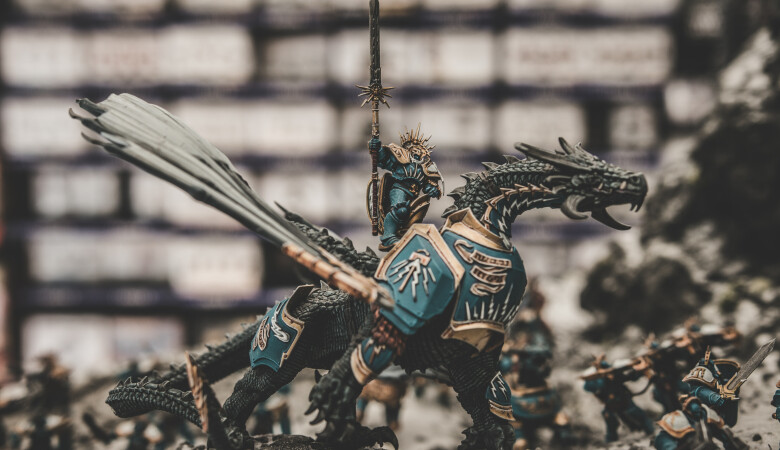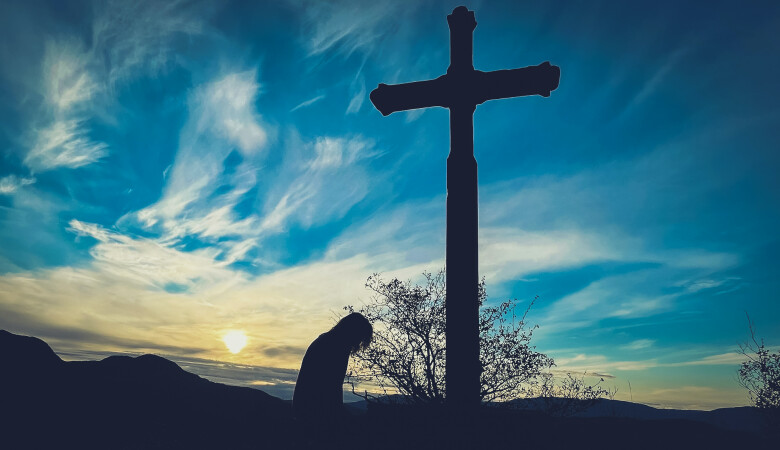Series: Job
Job’s Costly Commitment to Mercy Ministry (Job Sermon 20)
September 05, 2021 | Andy Davis
Job 31:13-23
Suffering, The Poor, Mercy
Job's commitment to mercy ministry teaches us two main lessons about suffering. First, Godly people alleviate the suffering of others. Second, godly people suffer well themselves, trusting in God through it all.
- Sermon Transcript -
Turn in the Bible to Job 31 as we continue to move through this book. As I study the various books of the Bible, I realize that God in his wisdom has given us this incredible holy library of 66 books. And that each book of the Bible has a different role to play in our salvation, actually an array of roles.
The central role of the book of Job is to address the problem of human suffering in the world. There are many other themes that come, but that is the central role. And in this book, we see an amazingly godly man, Job, being brought through wrenching trials, the dimensions of which we can scarcely imagine. And in this sermon today, today's sermon, we're going to see that Job, an amazingly godly man, cared very much about the sufferings of other people around him long before he ever came into suffering himself. He yearned to use his resources, his time, his energy, his money, all of the things are in his life to alleviate the suffering of others. That was part of what made him a blameless and a godly man.
"The central role of the book of Job is to address the problem of human suffering in the world."
And he recounts this track record in this chapter, Job 31. But this chapter, Job 31, his final defense, as we've been saying is set in the larger context of the sorrow and the misery that God had brought in his life. And so we can derive two lessons, a vertical lesson and a horizontal lesson from the themes today. Horizontally, first, godly people alleviate the suffering of other people around them. And then secondly, vertically, godly people suffer well themselves and do not murmur or chafe against God. They trust in God through it all. These are the two great lessons on suffering that I see through this chapter today. Now, as we deal with the issue of our horizontal awareness of the suffering of people around us and our sacrificial service to the poor and needy, I'm mindful of how difficult this topic is for all of us.
I. Life in a Bubble
It is very difficult for us as selfish sinners to care about the suffering of others. We really would like to move through life in this world in a protected bubble until we finally get to heaven and are free from it forever, no more death, mourning, crying or pain. We actually would like that to some degree.
Now this was underscored for me by two experiences I had on the mission field. The first was in the summer of 1986, my first time being outside of the United States, I went on a 10-week summer mission trip to Kenya. And at the end, the last week, we spent at a resort area on the Indian Ocean coastline in Mombasa. And it was a very nice resort. And we were there enjoying good food and fellowship together on the final week together. Some of us wanted to go into the city of Mombasa. And we went and we were in an air-conditioned van moving through this city of Mombasa. And for the first time in my life, I saw poverty in a city, not in the United States. I saw that the difference between the poor in the U.S. and the poor in other countries was almost immeasurable.
And it was shocking to me, the things that I was seeing in that area of Mombasa. And the more streets we moved through and drove through, the more uncomfortable I became with the shocking disparity between my lifestyle and the lifestyle of the people I was seeing outside that air-conditioned van. And it wasn't long after that, that van ride, that air-conditioned van ride became a kind of a symbol or a metaphor of me on this issue of ministering to the poor and needy, that my flesh, my heart desires, something like that for the rest of my life, I would like to just move and see it through tinted glass and be in a comfortable cushioned seat and have the air around me conditioned and just move through life like that.
The second experience came a year later on my second mission trip, this one in Pakistan. I was on a team ministering to Afghan refugees who were fleeing from the Russians who had invaded to support their toppling communist regime, summer of 1987. Now those refugees, the Afghan refugees that we'd seen, I'd never seen such poverty in all my life. I mean, no, there were no one. I still haven't seen anyone as destitute as those people. They had fled with only their tattered clothes on their backs. And they had been through such experiences we can scarcely imagine. Almost every one of them had seen a loved one killed by a helicopter gunship or a landmine or something like that. The horror on their face was extraordinary, and we sought to minister to them.
But the experience that sticks with me was not even those Afghan refugees, it was something that was churning in me. And as I looked and saw their needs and all that, but we're just moving through the city of Peshawar, and we're going to do some errands in Peshawar, Pakistan. And a number of poor Pakistani people would kind of come and accost you. They'd wait outside the bank when you went to get money or something. They were waiting for Westerners and they were coming at us. And as I encountered them, they would inevitably kind of point to their mouths and their stomach saying that they're hungry. They couldn't speak our language, but we knew what they wanted.
And it was disturbing to me. The missionary that we were working with was dealing with it all the time and was used to it, didn't say a lot about it. He said that the beggars were frequently organized into somewhat like professional syndicates, somewhat like a prostitution ring with a pimp and all that. There would be individuals that would take advantage of poor people and would take a lot of the money that you gave them. And that there was this whole system going on. But he said, "Look, if you're concerned about them, all you have to do is just go to a Pakistani bakery and buy some of that naan, that beautiful, warm, delicious, flatbread, and just get a bunch of it and just have it ready. And when people would come, just give them the bread.” So I thought this was a great idea. So I went to a bakery and bought five or six of these loaves and carried them around in a bag with me.
And wasn't long before a woman came doing the same thing, pointing to her mouth or her stomach. So I was excited. I triumphantly pulled out the naan and handed it to her and she became enraged and took it from me and threw it to the ground and walked away. She wanted money, she didn't want bread. And what was really troublesome to me at that moment was my heart reaction. I was actually relieved by this. It's, "Oh, okay." So I actually didn't feel I had as much of a burden now for the poor and needy, because of this woman's reaction. The whole thing's kind of a sham or a scam or something like that. Well, the problem was the day continued, there's more things going on. And another woman came up and she had a little child and she did the same thing pointing to her mouth in her stomach.
And I took out a piece of bread and she immediately ripped it in half and gave it to her child and ate it herself. And it was gone in seconds. I gave her the rest of the bread I had and I realized it isn't a scam, it isn't a sham. There are genuinely needy people in this world. And the fact of the matter is I was looking for a neat solution to ministry to the poor and needy.
I was looking for a way out to some degree. I realized that fully facing the problems of haves and have nots of poverty, of suffering in this world would be costly for me. And I would have to kind of get out of the air-conditioned van more than I was comfortable doing. And it was even more troubling to have a tour of my own heart in this matter, the wickedness and the selfishness of my own heart. That tour has continued to this present day. The fact of the matter is, Christ means to use the issue of poverty and the suffering of others, not just poverty, but suffering of any sort going on in other people's lives. Even among wealthy people, people that are going through cancer treatments or different things, just the suffering of others. He means to use that suffering to challenge us. And I mean that continually, a continual test, a continual challenge. He does not want us to feel comfortable ever, like we have a silver bullet or a neat solution to this problem. He means to bring us all, I think, to a point of desperation and self denial, where we look up to God and ask him what he would have us do. That we don't rely on ourselves to meet the needs, but we look to God. Jesus did this with his own disciples. He constantly challenged his own disciples. For example, the feeding the 5,000. Disciples came to Jesus late in the day, "Send the people home." And Jesus said, "They don't need to go away. You give them something to eat." Wow, what a moment that was.
"Christ means to use the issue of poverty and the suffering ... to challenge us. "
And John's gospel, then John's account, John tells us that Jesus sought out the issue with Philip and said, "Where are we to buy bread that all these people may eat?" And then John tells us, "Jesus only did this to test him because he knew what he was going to do." You just look that up. That's John 6. Jesus intends to test us on this issue. He brings the thing up and tests you to see how you will respond. So the issue is, are we going to be aware? Are we going to see what's going on in the world around us? We're going to face the huge overwhelming needs of many sorts. Will we look upward and trust God for the resources to meet needs? And then will we be sacrificial servants to alleviate suffering of others in the world or not?
Now we need help on this issue, because from infancy, every one of us has been fanatically committed to self-interest. Augustine, in his classic Confessions, he describes the staggering level of selfishness, even in an infant nursing at his mother's breast. What was he like a moment before his needs started to be met? Well, you moms know exactly what he was like, depending on the circumstances, howling with rage. Inarticulate, unable to speak what was on his mind. But he wasn't thinking about you, Mom, and what your needs were at all, fanatical commitment to self-interest. And all of us are like this. Not just some of us, all of us. We grow up in that same mode.
And only Christ, only the power of the Holy Spirit, only the grace of God, can break that fanatical commitment to self-interest so that we might love God with all of our heart, soul, mind, and strength, and that we might love our neighbor as ourselves. And to this end, we are given the greatest possible example. I don't mean Job, we'll get to him in a moment. But I mean Jesus Christ. Jesus entered the world before his incarnation with his eyes wide open, knew very well he was going to be swimming in a sea of misery. He was a man of sorrows and familiar with suffering. What were his daily days of ministry like? What was it like? It was a river of sick, hurting people coming to him for healings. That's what his day was like. Crowds bigger than you can imagine. Crushing him, all of them sick or broken or paralyzed or in some agony in some way. He was just drawing the poison of sorrow and suffering into himself. Second Corinthians 8:9, "For you know the grace of our Lord, Jesus Christ, that though he was rich, yet for your sakes, he became poor that you through his poverty might become rich." So Jesus left the comfort and ease of heaven to alleviate our sufferings.
Now in Scripture, God has given us, aside from the central glorious example of Jesus, many other examples as well. And I think in the Old Testament, there may not be a greater example of mercy ministry or care for the poor and needy or justice ministry, whatever you want to call it, than Job and the way he accounts himself here in Job 31. Job lived out what James calls a pure and faultless religion. James 1:27, "Religion that our God and father accepts as pure and faultless is this: to look after orphans and widows in their distress, and to keep oneself from being polluted by the world." Now let's remember the context here in the midst of Job's sorrows and sufferings that we know about. We've talked about this many times.
Job 31 is his final defense against the accusations of his friends. Eliphaz, Bildad and Zophar have accused him of suffering because of his own wickedness. But as you remember from the very beginning, Job is introduced to us as a blameless and upright man who feared God and shunned evil. Now, God allowed Satan to assault Job, to steal from him his wealth, his children, and his health. And then in the cycle of debate and discussions that follow, that make up the bulk of the book, there's all these discussions from Eliphaz, Bildad and Zophar. They came to be with him and they followed their theology, the law of sowing and reaping, you reap what you sow, and God is just inactive in this world. So the only possible explanation for the magnitude of Job's suffering is that he must be a great sinner. They have no evidence, but this is where the theology led them. And so Job 31 is his defense against this. He's refuting this vigorously. Now we've already looked two weeks ago in an overview fashion over this whole chapter, magnificent chapter of eight different elements of Job's righteousness. Last week, we focused on Job's commitment to absolute sexual purity.
Today, we're going to zero in on his care for mercy ministry. And this is a direct answer to a Eliphaz's outrageous accusation against Job. Job 22:5-10, Eliphaz said this, and just keep this in mind. This is the blameless and upright man that God boasted about to Satan. Eliphaz said this, "Is not your wickedness great? Are not your sins endless?" Now this is Eliphaz way out on a limb, no evidence. He's just saying these things. “You demanded security from your brothers for no reason, you strip men of their clothing, leaving them naked. You gave no water to the weary. You withheld food from the hungry though, you were a powerful man owning land, an honored man living on it. And you sent widows away empty handed. You broke the strength of the fatherless. That is why snares are all around you, why sudden peril terrifies you.”
So we're going to see in this chapter, in the sermon today, just three kind of main areas of Job's mercy ministries, concern for mercy. First in verse 13, fair treatment for his servants. And then secondly, in verses really throughout, but 16-20, especially sacrificial care for the poor and needy. And then thirdly, justice for the needy in court, exerting influence and justice for the needy in court. These are the three main areas. So we'll walk through each of these so that Job can give us help, that Job can be a role model, so that Job can stand and say to us in Christ, “follow me as I follow Christ." That's what ultimately the benefit that we'll have from this. So let's talk first about the cost of Job's care for the poor and needy. This is not without charge. It's costly. It was energetic and costly for Job to serve the poor and needy.
II. The Cost of Job’s Care for the Needy
Now remember a couple of weeks ago, I talked about the contrast between Confucius' version of the Golden Rule and Jesus' version. I don't know if you remember that. The Golden Rule, Matthew 7:12 says, "So in everything, do to others what you would have them do to you, for this sums up the law and the Prophets." It just sums up the second great commandment, "Love your neighbor as yourself."
If you think about it, that means activity, it means energy, it means self-denying, sacrificial work. Effectively it's saying, put as much energy into caring for the needs of your neighbor as you do into caring for your own needs. Put as much thought and creativity into caring for the needs of your neighbor, as you do into caring for your own. So Christ's Golden Rule is harder to obey than Confucius'. Confucius’ basically is negative, don't do to others what you would not have them do to you. It's a simple ethic of “do not harm.” Do no harm. Christ turns around and says, "Actively do good as you would have it done to you."
"So Christ's Golden Rule is harder to obey than Confucius'. Confucius’ basically is negative, don't do to others what you would not have them do to you. ... Christ turns around and says, "Actively do good as you would have it done to you.""
Remember, Christ's parable of the Good Samaritan taught to, I guess, a lawyer who tried to justify himself. There’s always the danger on this issue of mercy and ministry. We're always trying to justify ourselves and our behavior. We're fine as we are. We care about poor people like we should. He said, "Well, who is my neighbor?" And he told the parable, "The Good Samaritan."
You remember how this man went down on the road to Jericho and was waylaid by highway robbers who violated Confucius' rule of do not do harm. They attacked him and etcetera. They also violated the Golden Rule. But then along come two others. You remember a priest who saw him bleeding there by the side of the road and walked by on the other side of the road and just kept going and did nothing. So he fulfilled Confucius' edict to not do harm, but he didn't do anything for him. He saw him and just walked on. Same thing with the Levite, exact same thing. He saw him. Jesus makes it very clear. Both of these saw, but they walked on, on the other side of the road. So the seeing and other side, that's what I mean by the bubble, that air-conditioned bubble that we're looking for. I see it, but I don't want to see it. And I'm over here and there's a space. And then along comes the Good Samaritan who sacrificially cares for him. So Job did that. Job lived a life of active service. It was costly for him to care for the fatherless and the widow. It was costly for him to feed hungry and clothe the naked. It was costly for him to house the stranger. This is the pattern that Jesus commends to all his servants.
And it's on the basis of this, he says in Matthew 25, that he's going to evaluate the entire human race. “When the Son of Man comes in his glory and all the angels with him, he will sit on his throne in heavenly glory and all the nations will be gathered before him, and he will separate the people one from another, as a shepherd separates the sheep from the goats. And he's going to put the sheep on his right on the goats on his left.” And he's going to say to those on his right, the sheep, "Come, you who are blessed by my Father. Take your inheritance the kingdom prepared for you from the foundation of the world for I was hungry and you gave me something to eat. I was thirsty, you gave me something to drink. I was a stranger and you invited me in, I needed clothes and you clothed me. I was sick, and you look after me. I was in prison and you came to visit me." And they said, "When?" And he said, "Whatever you did for one of the least of these brothers of mine, you did it for me." Then he turns it around on the goats and said, "You did not do these things for me." Priest and the Levite walking by on the other side, "You didn't do it. So depart from me you who are cursed," he says. That's what's going to happen on Judgment Day. It’s a costly sacrificial service.
III. The Patterns of Job’s Care for the Needy
Now let's talk about the patterns of Job's care for the needy. Now Job's speech, his talk is in the form of an oath that he's taking in a court. If I have done this, and if I have done that, and if I have done the other, then may I be cursed? That's basically the pattern that we have in his language here. So verse 16, verse 17, verse, 19 verse 21, they all have “if, if, if, if.” So, but he's denying that he did those things. So you turn it around, they become then the assertions he's making about his life. So first one, fair treatment for his servants in verse 13. Verse 13, "If I have denied justice to my man servants and maid servants, when they had a grievance against me…..may I be accursed?" I didn't, I didn't deny justice to my men servants and maid servants when they had a grievance against me. Job was a great man running a great estate. He had lots of livestock. He had many servants that cared for the livestock as you remember. If any of them Job said, at any time had a grievance against him, say, I didn't run a perfect estate.
Inevitably there would've been some things that would've happened, some mistakes, some ways that I could have been a better master to them as servants. I could have done better. So if they ever brought a grievance to me, I made certain that I heard them, that I listened to them and that I addressed their grievance. That's what he's saying. He was humble enough to listen to them. Great men of those days, they wouldn't listen to these people at all. They wouldn't even get a day in court, so to speak. They wouldn't even be heard. Job made certain that they were heard, made certain that their needs were addressed, was humble in that respect. Modern day application, some of you may be important, powerful people in your companies. You may be employers. You may be bosses. The question is, do you deal justly with people who have a grievance against you? Very easy to get defensive and use your position of power to make life difficult, to make their work lives miserable.
Second main pattern is just sacrificial care for the poor and the needy. In verse 16, he said, "If I've denied the desires of the poor or let the eyes of the widow grow weary." So this is a lifestyle of active care for the poor and widows in the community. He did not deny their desires, the basic commodities of food, of clothing, of shelter. He saw that they got it. He didn't send them away empty handed without their desire met. So over 17 bread for the hungry. If I had kept my bread to myself, not sharing it with the fatherless. John Calvin, in his sermon on this text, he uses the image that frequently the New Testament uses of a steward who's put in charge of the master's goods to manage them.
And the master gives specific instructions that this amount of these resources go to this person and these resources must go to this person and all that. He gives specific instructions. And then the steward doesn't do what the master told him to do. He doesn't embezzle. He doesn't hold it to himself.
He just doesn't distribute the goods the way the master told him to. "That master,” said John Calvin, "will have every right to be angry with the steward because by his not following out the generous commands of his master, he made the master look stingy. He made the master look unjust." And so it is when we withhold resources that the Lord has given to us, that he means to distribute, then we actually make God look bad.
As it says in Romans, "The name of God is blasphemed because of you." Romans 2:24. We don't want to do that, we want to make our God look generous. Now we cannot give a specific rule about how much to give or when to give or etcetera. It's hard to know. It takes wisdom. Jesus said in Mark 14:7, "The poor you will always have with you” and you can help them anytime you want." And that, just that freedom, it's just like they're always going to be around you. You're not going to solve the problem of poverty in the world. So you're always going to have opportunities. And part two, you can help them anytime you want. Implied in that is you can help them as much as you want.
Part three is, we'll talk about how much that was on judgment day. That's how I hear that. You're always going to have poor. We can't solve this. It's going to be with us till Jesus comes back. Secondly, it's up to you what you do. You have choices to make in this matter. And third, sheep and the goats, we're going to talk about it on judgment day.
So God leaves it to us to be wise stewards, to give in proportion to our income, wisely learning the condition of the poor. Expecting in some cases, perhaps to get taken advantage of like that beggar syndicate. I didn't know anything about that. I didn't realize that a good chunk of the money that I gave would go to some unscrupulous wicked person.
But that doesn't free me from caring for the genuinely hungry there. Job was lavishly generous with any person, poor person he knew. We tend to be stingy. We also feel excessively proud of ourselves when one out of a hundred times we help someone. And then we feel like we boast, “that was a big moment for me, Lord, you did see that,” right? “You saw what I did there. That was generous of me, don't you think?” So we like that. I know it's hard. I know it's hard, brothers and sisters, to get this right. I understand. I've been fighting this struggle, I struggle with this issue my whole Christian life. I understand. I don't think we're going to reach Job's level. But the dynamic of the Christian life is to see some defect in yourself and take it to God in prayer and say, "Change me, make me a different man or a different woman a year from now than I am now. I'm not very generous to the poor and needy, honestly. I don't sacrifice much for them. Will you please transform me?"
He also talks about giving guidance to the orphan and the widow. Verse 18, "But from my youth, I reared the fatherless as would a father. And from my birth, I guided the widow." So he basically just kind of grew up in an atmosphere of caring about the poor and needy. Obviously, he doesn't care for widows as an infant. But I think what he's saying is these foundations got built in his soul from an early age. Says a lot about Christian parenting, doesn't it? That you’re raising people up, kids up to care about others from childhood.
And then look at the level of care. He said that the fatherless grew up with him, implies adoption or an active care for the orphan, giving him an education, rearing him as a father would a child. This was the level of Job's piety. It was very costly. It's hugely inconvenient to open your home and your lifestyle to an outsider. But to be the father to the fatherless involves a lot more than just giving a little bit of money. In Job's case, it meant pouring wisdom into the young man, seeing him grow up. And then when it came to the widow, it wasn't again, merely a matter of money. It was guidance. She was stripped of her protection often, legally. But she could come to Job and he was a safe haven for her. He would give her good advice, not just money, but guide her and get her into a good situation. So Job spent himself on behalf of the poor and needy. It was time. It was money. It was energy. Those commodities.
And he speaks of clothing for the shivering. Verses 19 and 20, "If I've seen anyone perishing for lack of clothing or a needy man without a garment and his heart did not bless me for warming him with the fleece, from my sheep." So Job took his massive resource. Remember he had 7,000 sheep and he used a large portion of the wool that he had sheared from his sheep to make certain that the poor, the naked that he knew, were clothed. He rescued them from perishing in the cold. And he saw them. It was a key moment. He looked at them, he saw them with compassionate eyes. And he cared for them.
He also speaks of housing for the stranger, verses 31, 32. He said that, "The men in my household have never said, who has not had his fill of Job's meat? But no stranger had to spend the night in the street for my door was always open to the traveler." So he was open for hospitality. I mean, back then, you didn't have hotels and inns generally. And so if there was a stranger coming into the community, as Jesus said, "I was a stranger, you invited me in."
And then finally, this issue of justice in court. In verses 21-22, he says, "If I have raised my hand against the fatherless, knowing that I had influence in court, then let my arm fall from the shoulder, let it be broken off at the joint." It was easy for the poor and the widow to get dominated in court. It's easy for the powerful, the wealthy to set up the system and gain the system so that they can take advantage of people who can't get good legal counsel or can't get somebody to stand up for them in court. This is why Jesus said very plainly that the teachers of the law, he cried out, “woe to them” because they devoured widow's houses. What does that mean? They were able legally to confiscate widow's property, take advantage of them. So instead, a truly godly man would come to the aid of widows in a court of laws. It says in Isaiah 1:17, "Seek justice, encourage the oppressed, defend the cause of the fatherless, plead the case of the widow." Now, what were the reasons for Job's care for the needy? This is as important as what he did.
IV. The Reasons for Job’s Care for the Needy
And his reasons, as we've seen in Job 31, was a God-centered piety, everything centered on God. From the beginning, we're told of Job that he “feared God and shunned evil.” Things came again and again in Job's heart to God, to that vertical dimension. He was always thinking about God, how will God see this? What will God do about this? And he knew that he was accountable to God.
For example, his reason for making certain he didn't deny justice to his own servants is that someday he himself would have to give an account to his own master. He knew that while he was a master temporarily, at least he was also a slave of God. So look at verses 13-14. He said, "If I have denied justice to my men servants and maid servants, when they had a complaint against me, what will I do when God confronts me? What will I answer when called to account? Someday," Job said, "I'm going to have to give an account for how I have treated these people. I'm going to have to give an answer to God for what I've done." And fundamentally, as he says in verse 15, God made us both. Verse 15, "Did not he who made me in the womb make them? Did not the same one form us both within our mothers?" John Calvin said, "Whenever you look at another human being, no matter what their circumstances, you're really looking in a mirror. You are both created in the image of God. There's no significant difference between you." So this is the foundation of all of our ethical treatment of other human beings. This person is a human being created in the image of God, fashioned in the womb by his meticulous care, just like you.
Job also feared God's judgment. Verse 23, "I dreaded destruction from God. For fear of his splendor, I could not do such things." Job knew that God would be highly motivated to defend the poor and needy against their oppressors. He says in Proverbs 14:31, "He who oppresses the poor shows contempt for their Maker. But conversely, whoever is kind to the needy honors God." So turning it around positively, whenever you are kind to the needy, you're honoring God, you're worshiping God, you're elevating God and presenting him as glorious and loving. And that's ultimately a positive motivation, isn't it? The delight you bring to others, the happiness you can bring in somebody's circumstance.
Look at verse 20, 19 and 20. He said, "If I've seen anyone perishing for lack of clothing or a needy man without a garment and his heart did not bless me for warming him with a fleece from my sheep." How sweet is that? Somebody's in a extremity, an extreme situation and you're able to step in with some resources. Might just be counsel, might be friendship, but it could be money, some care and the burden is gone. You've taken care of it and there's a joy that comes from it. Now I know not everybody's going to say thank you. I know not everybody. Some people act as though you owe it to them. We understand that. There's going to be some bad behavior on both sides of the equation, but that doesn't matter. No matter what happens, ultimately, what matters is vertically God sees it and he's pleased. There's a joy and a delight in all of this.
V. Applications
All right. So what applications can we take from this? Well, first of all, Job is to all of us, spiritually, a father. We are like his children. It's like, "Teach me, dad, how to be, what kind of man should I be? What kind of woman should I be?" To have a godly father who can set a good role model for us and set a good example. So I don't think we're going to reach Job's level. You read this chapter. If you take it all as gospel truth, that this is how he lived his life, it's a very, very high standard. What you can do is take counsel in prayer with yourself. If you're married, husband and wife, get together and say, "How can we grow in care for the poor and needy? What can we do?" There are ministry opportunities right here in Durham. There are ministry opportunities around us. So we have to ask, not just individually, but for us as a church, the elders of our church, we have to ask what mercy ministries does God want us to do that we're not doing yet? I can't imagine not asking this. Oh, it's inconceivable that we aren't doing any mercy ministries God wants us to do that. Just can't be, there must be some opportunities that we're missing, there must be some things. Maybe up to this point, there hasn't been an open door, but now there's an opportunity. How can we do that? And as we do, we need to keep proper priorities. We need to care for the body, but care more for the soul. They're not equal in importance.
The social gospel in the 19th century basically said, fatherhood of God, brotherhood of man, God has no active wrath or justice against any sinners. It's all fine. It's like a universalism kind of thing. The real issue is alleviating temporal suffering. That's what the social gospel is all about. The soup kitchens, all that kind of thing. There was no concern for proclaiming a gospel of salvation to sinners who were under the wrath of God, because they didn't believe in that. That was a social gospel. But the problem was fundamentalists in the 19th and on to 20th century overreacted the other way and did nothing for the body, many of them. Preached the gospel and that was it. And so there was a detachment that seems a lot like that air-conditioned bubble ride I was talking about that fundamentalists just didn't get involved in alleviating temporal suffering. And then Carl F. H. Henry came along the uneasy conscience of the modern evangelical and there started to be a concern.
John Stott talked about two wings of a bird, the gospel, and then alleviating temporal suffering. I don't think it's helpful because I think they're not equal. Do you remember when Jesus fed the 5,000? Remember that? John 6. What did they do the next day? Came back for more food. Remember? It's like, "Well, this is a good gig. Jesus can do this effortless. I could quit my Job. It's like we've won the lottery here. I mean, he waves his hand and a five loaves and two fish and look at that. And that was good. Those are good loaves too. Did you taste that fish? It was good. Jesus is an excellent chef." Jesus rebuked them for that constant pressure for the stomach. He said, "Do not labor for the food that spoils, but for the food that endures to eternal life, which the son of man will give you." So they're not equal. They're not like two wings of a bird. One is far more important.
A number of years ago, I spoke at a conference Gospel Coalition put on about mercy ministry and they're talking about that. And the slogan’s very helpful. Christians should care about all human suffering, but especially eternal suffering. There is no suffering worse than that of eternity in hell. Depart from me ye who are cursed into the eternal fire, prepared for the devil and his angels. But Christians should also seek to alleviate temporary suffering too. Jesus did, and Job did. So that's what stands in front of us. So the call to us is to get out of the bubble and to make steps toward people that are broken, people that are hurting. People, we tend to go away from suffering. We need to go more toward it, ask God to work this in you. But realize, no matter how much you do in mercy ministry, no matter how sacrificial you are, even if you got close to Job's level, none of those things would ever save you from your sins. Job wasn't saved from hell because of his mercy ministry. And after this chapter, a few chapters later, he's repenting of his sins vertically. He needed to repent and have a savior as much as any human being. And so we are saved because Jesus left his throne and came and was born of the Virgin Mary and lived a sinless life and died an atoning death for sinners like you and me. And by faith in Christ alone, our sins are forgiven. Not by our mercy ministry, our justice or any of that. But having been saved, how then shall we live? Job 31 tells us. Let's close in prayer.
"Christians should care about all human suffering, but especially eternal suffering. There is no suffering worse than that of eternity in hell."
Lord, thank you for the role model that Job is for us in this issue of justice and mercy. Father, we know that this is a challenging topic. We know it searches us. We are so selfish. Father, I pray that you would enable us to be more generous than we've ever been before. Show us individually and show us also as a church, what mercy ministries and what alleviation of suffering that you're calling us to do. Help us to be willing to do it even if it's sacrificial, maybe especially if it's sacrificial. Transform us, Lord. Make us different. Help us not to be selfish and self-focused, but instead to live for others as you did. In Jesus’ name. Amen.































